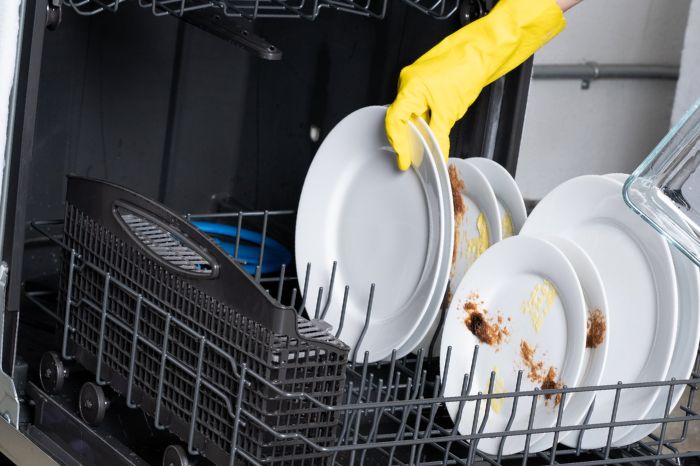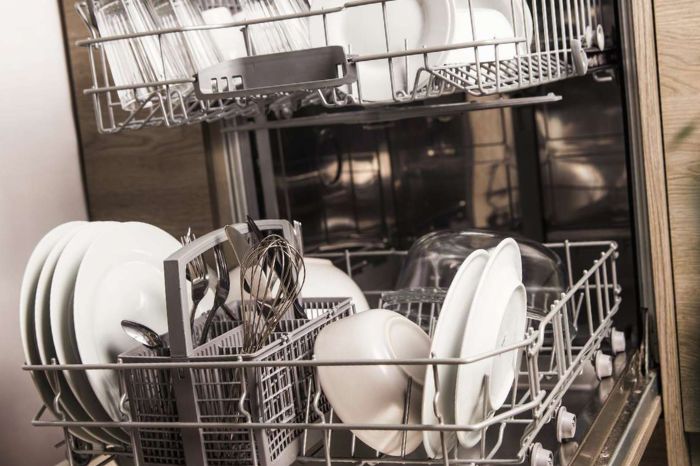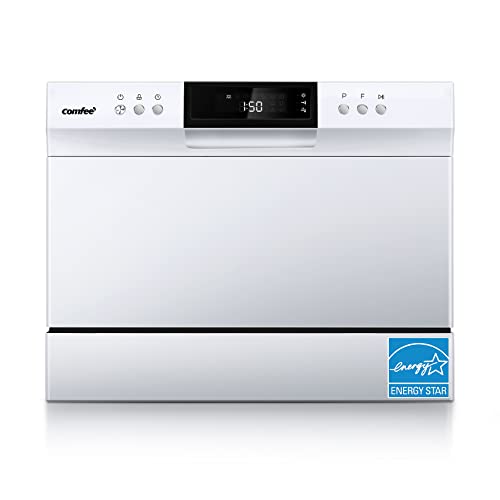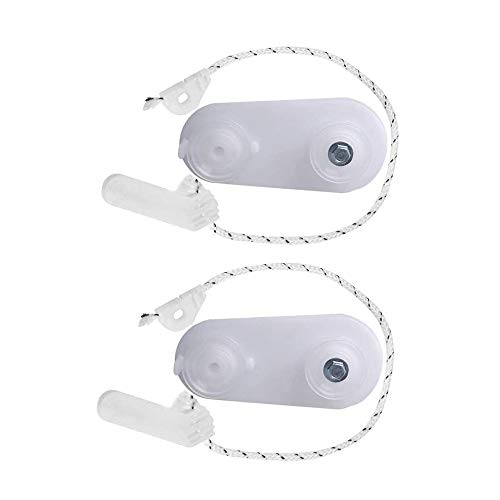Do Dishwashers Use A Lot Of Electricity?
In today’s fast-paced world, where every second counts, we constantly look for appliances that can make our lives easier and more efficient. Among these appliances, the dishwasher has emerged as a boon for people who hate washing dishes by hand. A dishwasher is a machine that cleans and dries dishes and other kitchen utensils. It has become a popular kitchen appliance across the globe that saves time, water, and energy.
But with the rise of eco-consciousness, people have become concerned about the energy usage of their appliances and whether they are wasting resources by using a dishwasher. In this article, we will answer the question, “Do dishwashers use a lot of electricity?” and explore the energy efficiency of modern dishwashers.
To answer this question, we need to dive deeper into the workings of a dishwasher and its energy consumption. In this article, we’ll take an in-depth look at the energy consumption of dishwashers compared to washing dishes by hand, and explore some features to look for in an energy-efficient dishwasher. Finally, we’ll discuss whether to run your dishwasher at night or during the day to save money on electricity costs. So, let’s get started!
How Much Energy Does A Dishwasher Use Compared To Washing Dishes By Hand?
When it comes to washing dishes, the debate between using a dishwasher or washing them by hand has been ongoing for years. While some prefer the traditional method of hand washing, many opt for the convenience and efficiency of dishwashers. But the question still remains, how much energy does a dishwasher actually use compared to washing dishes by hand?
To answer this question, let’s start by looking at the average energy usage of a dishwasher. According to Energy Star, a standard-size dishwasher uses around 3.5 to 12 gallons of water per cycle and consumes about 1.5 to 3 kilowatt-hours (kWh) of energy. However, newer models with Energy Star certification are designed to be more energy-efficient, using only around 3 gallons of water and 0.87 kWh of energy per cycle.
On the other hand, hand-washing dishes can vary widely in terms of energy consumption depending on individual habits and methods. According to a study by the University of Bonn in Germany, hand-washing dishes can use up to 27 gallons of water per load, which is significantly more than the water usage of a dishwasher. In terms of energy usage, it also depends on how hot the water is and how long the tap is left running.
Additionally, using a dishwasher can help save energy by allowing dishes to dry on their own rather than using additional energy to dry them by hand. Opting for air-dry or economy settings can also further reduce energy usage.
While hand-washing dishes can be a personal preference or necessity in some situations, in terms of energy efficiency, dishwashers are the clear winners. Using newer, Energy Star certified models and utilizing energy-saving settings can further reduce the amount of energy used by dishwashers.
What Kind Of Features Can You Look For In An Energy-Efficient Dishwasher?
There are several key features you should look for in an energy-efficient dishwasher to ensure that it meets your needs and delivers reliable and effective performance.
Energy Star Rating
First and foremost, you should look for the Energy Star rating, which is a certification system that promotes energy-efficient appliances and can help you identify models that meet strict energy and water efficiency criteria. Energy Star dishwashers are designed to use less water and energy than traditional models, which can help you save money on your utility bills over time.
Load Sensor
Another important feature to consider is the load sensor, which can help you optimize the amount of water and energy used in each cycle. Load sensors use smart technology to detect how much dishware is in the dishwasher and adjust the wash accordingly, reducing the amount of water and energy needed to complete each load. This can help you save money and reduce your environmental impact, while still ensuring that your dishes come out clean and sparkling every time.
Cycle Lengths
Cycle lengths are also an important consideration when shopping for an energy-efficient dishwasher. Many modern models offer a range of cycle lengths, including shorter cycles that use less water and energy for smaller loads of dishes. This can be particularly useful for households that do not generate large volumes of dishware on a daily basis, as it allows you to run the dishwasher more frequently without wasting water or energy.
Water Usage
Water usage is another key feature to look for in an energy-efficient dishwasher. Many modern models use advanced water-saving technology, such as spray arm designs and filtration systems that recycle water between cycles, to reduce overall water consumption. This can help you save money on your water bill and reduce your environmental impact, without compromising on the quality of your dishwashing results.
Should You Run Your Dishwasher At Night Or During The Day To Save Money On Electricity Costs?
Dishwashers are a staple in most modern households, providing a convenient way to keep dishes and utensils clean without the hassle of manual washing. However, with rising electricity costs, many people are looking for ways to save money on their energy bills. One common question that arises is whether it is more cost-effective to run your dishwasher at night or during the day.
The answer to this question is not straightforward, as it depends on several factors. One of the most significant factors is your electricity plan. If you are on a time-of-use plan, where electricity rates are higher during peak hours, running your dishwasher at night when rates are cheaper could save you money. However, if you are on a flat-rate plan, it may not make much of a difference when you run your dishwasher.
Another factor to consider is whether you have a modern, energy-efficient dishwasher. These appliances are designed to use less water and energy than older models, meaning that they are less costly to run overall. If you have an older model that is not energy efficient, you may save more money by running it at night when rates are lower.
Whether you should run your dishwasher at night or during the day to save money on electricity costs depends on several factors. It is important to consider your electricity plan, the energy efficiency of your dishwasher, and your household’s schedule and needs. By taking these factors into account, you can make an informed decision that will help you save money on your energy bills while still enjoying the convenience of a dishwasher.
Conclusion
It is clear from the above information that dishwashers do indeed use some electricity, however, the amount depends on the size of the machine and how it is used. Taking into consideration energy-saving tips such as checking seal integrity regularly, opting for a lower temperature cycle, washing fewer but larger loads, and selecting an energy-efficient model should help to reduce the voltage needed to operate this kitchen appliance.
By developing these types of practices, it may be possible to reduce monthly electric bills while still cleaning dishes effectively. As households become increasingly aware of potential savings opportunities associated with efficient appliances and strategies, now is the time to consider ways in which the consumption of resources can be minimized.





